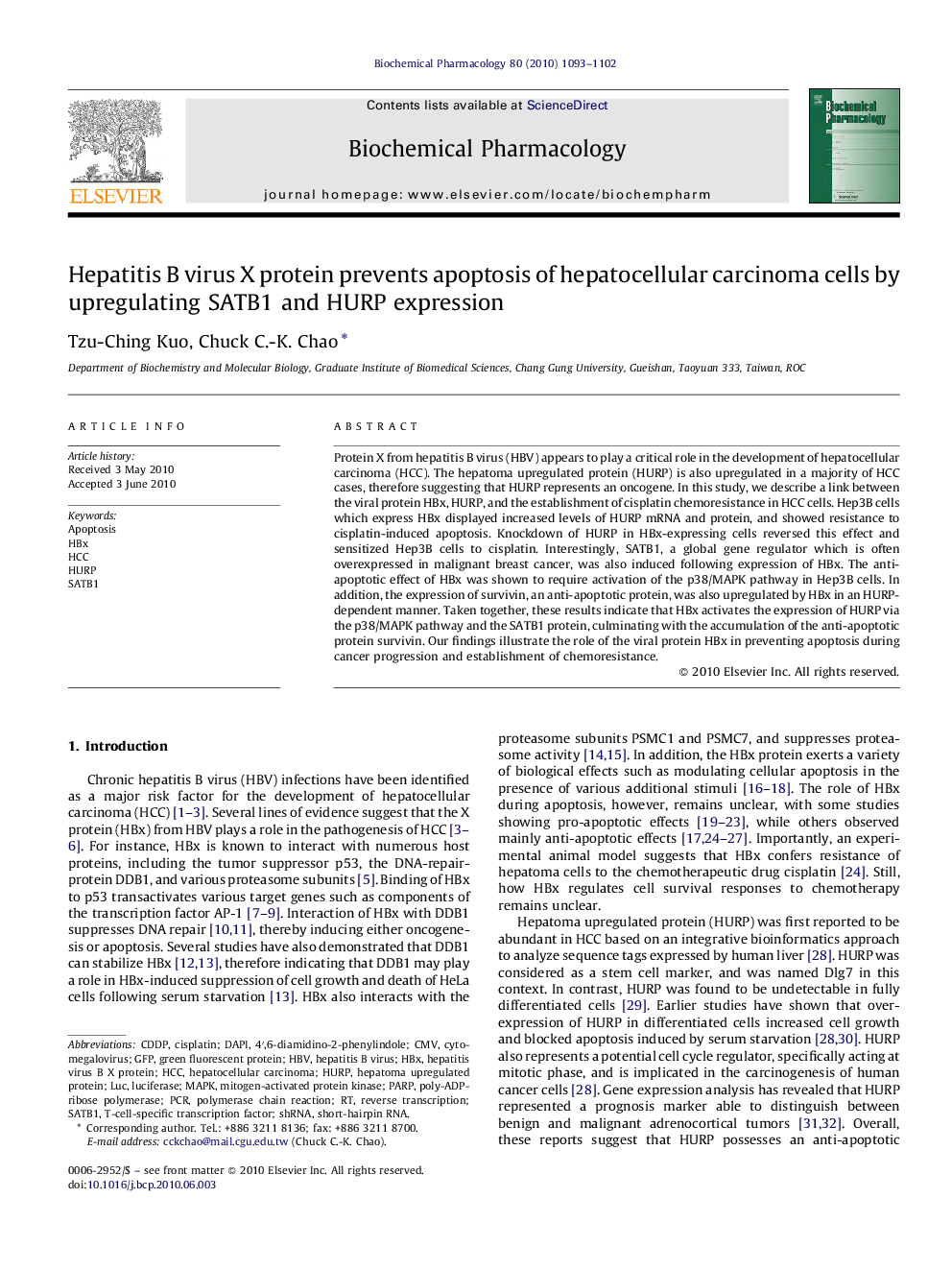| Article ID | Journal | Published Year | Pages | File Type |
|---|---|---|---|---|
| 2513356 | Biochemical Pharmacology | 2010 | 10 Pages |
Protein X from hepatitis B virus (HBV) appears to play a critical role in the development of hepatocellular carcinoma (HCC). The hepatoma upregulated protein (HURP) is also upregulated in a majority of HCC cases, therefore suggesting that HURP represents an oncogene. In this study, we describe a link between the viral protein HBx, HURP, and the establishment of cisplatin chemoresistance in HCC cells. Hep3B cells which express HBx displayed increased levels of HURP mRNA and protein, and showed resistance to cisplatin-induced apoptosis. Knockdown of HURP in HBx-expressing cells reversed this effect and sensitized Hep3B cells to cisplatin. Interestingly, SATB1, a global gene regulator which is often overexpressed in malignant breast cancer, was also induced following expression of HBx. The anti-apoptotic effect of HBx was shown to require activation of the p38/MAPK pathway in Hep3B cells. In addition, the expression of survivin, an anti-apoptotic protein, was also upregulated by HBx in an HURP-dependent manner. Taken together, these results indicate that HBx activates the expression of HURP via the p38/MAPK pathway and the SATB1 protein, culminating with the accumulation of the anti-apoptotic protein survivin. Our findings illustrate the role of the viral protein HBx in preventing apoptosis during cancer progression and establishment of chemoresistance.
Graphical abstractHBx elicits the expression of SATB1 in a p38-dependent manner. HURP is further induced and required for the induction of survivin which in turn blocks isplatin-induced apoptosis.Figure optionsDownload full-size imageDownload as PowerPoint slide
